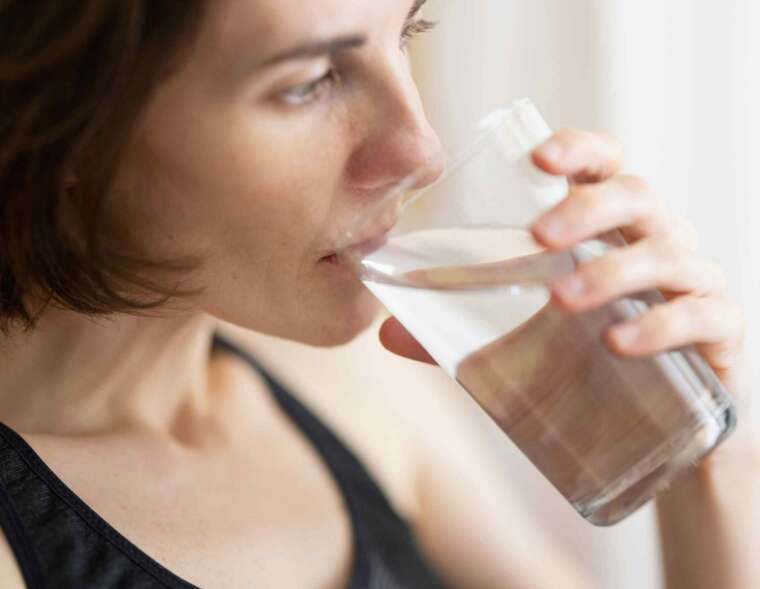Clean water is the foundation of a healthy home, yet many homeowners remain unaware of what’s actually flowing from their taps. Whether you rely on municipal water or a private well, understanding your water quality is essential for protecting your family’s health, extending the life of your appliances, and maintaining your property value.
Why Water Quality Testing is Essential for Georgia Homeowners
Regular water testing isn’t just a precaution—it’s a necessity for responsible homeownership. Water contaminants can pose serious health risks, damage expensive appliances, and deteriorate plumbing systems over time. Even water that looks, smells, and tastes fine may contain harmful substances that are completely undetectable to your senses.
Georgia water quality concerns are often unique to our region. From naturally occurring minerals in groundwater to industrial contaminants in certain areas, Georgia residents face specific challenges that require targeted testing and treatment approaches. Agricultural runoff, aging infrastructure, and industrial activities all impact our water supplies in ways that can vary dramatically even between neighboring communities.
Why is it important to test water quality regularly? Because water sources can change over time. New contaminants may emerge, treatment effectiveness can vary, and even seasonal changes can affect your water quality. Whether you’re on municipal water or a private well, establishing a baseline and monitoring changes ensures you’ll catch potential problems before they affect your health or property.
Common Water Contaminants in Georgia Homes
Georgia water quality issues typically involve several common contaminants that vary by location and water source:
- Hardness minerals (calcium and magnesium) that cause scale buildup
- Iron and manganese that cause staining and metallic taste
- Sulfur compounds that create unpleasant odors
- Chlorine and disinfection byproducts from municipal treatment
- Microbial contaminants including bacteria and viruses
- Industrial chemicals and agricultural runoff in certain areas
These contaminants can affect everything from the taste of your morning coffee to the efficiency of your water heater, making regular testing an essential part of home maintenance.
The Cost of Ignoring Water Quality Problems
Overlooking water quality issues can have significant consequences. From a health perspective, contaminants like lead, arsenic, nitrates, and certain bacteria can cause serious illness. These health impacts may develop slowly over time, making it difficult to connect them to water quality without proper testing.
Beyond health concerns, why is it important to test water quality? Because poor water quality takes a financial toll as well. Hard water can reduce the lifespan of appliances like dishwashers and water heaters. Acidic water can corrode pipes, leading to leaks and costly repairs. Mineral buildup reduces water flow, decreases efficiency, and increases energy bills. Addressing water quality proactively through testing and appropriate treatment is far less expensive than dealing with these consequences reactively.
Understanding Different Water Quality Tests for Drinking Water
For city water users, testing often focuses on contaminants that might enter the water after it leaves the treatment plant, such as lead from old pipes or chlorine byproducts. For those with private water sources, well water testing needs to be more comprehensive since this water doesn’t receive municipal treatment. Well owners typically need to test for bacterial contamination, nitrates, pH, total dissolved solids, and contaminants specific to their area.
When selecting water quality tests, consider both aesthetic issues (taste, odor, staining) and health-related concerns. While some aesthetic problems are merely annoying, others can signal potentially serious health hazards that require immediate attention.
Basic Water Quality Indicators Every Homeowner Should Know
Several fundamental water quality indicators provide important information about your water’s overall condition:
- pH levels indicate whether your water is acidic, neutral, or alkaline, affecting how it interacts with plumbing and appliances.
- Total dissolved solids (TDS) measure the overall mineral content.
- Hardness quantifies calcium and magnesium levels that cause scale buildup.
- Total coliform bacteria serve as indicators of potential contamination from outside sources.
These water quality indicators serve as a starting point for understanding your water. Abnormal readings in these basic parameters often signal the need for more specific testing to identify exactly what’s affecting your water quality and how to address it effectively.
How to Check Water Quality at Home: DIY Testing Options
For homeowners wanting immediate insights into their water quality, several DIY testing options offer a good starting point. Home testing kits range from simple strip tests to more sophisticated mail-in laboratory analysis packages. While professional testing provides the most comprehensive results, DIY options can help you monitor your water between professional assessments or identify obvious problems.
When you check water quality at home, remember that different testing methods have varying levels of accuracy and detection limits. Simple color-changing test strips might be adequate for basic parameters like pH and hardness, but they typically can’t detect low levels of harmful contaminants like lead or arsenic. For these concerns, laboratory analysis is essential.
After testing, you may need to consider appropriate water filter options based on your results. The right filtration system depends entirely on what’s in your water—contact our experts to learn more about the filtration system that may be right for your home.
Simple Visual and Sensory Tests for Quick Water Quality Checks
Between formal tests, you can perform a basic water quality check using your senses:
- Visual inspection: Fill a clear glass with water and examine it against a white background—it should be clear, not cloudy or discolored
- Odor assessment: Cold water should be odorless; sulfur smells (rotten eggs) can indicate bacterial contamination
- Taste evaluation: Water should taste clean without metallic, chemical, or earthy flavors
- Staining patterns: Blue-green stains on fixtures may indicate acidic water and copper pipes, while rust stains suggest iron
- Soap reaction: Soap that doesn’t lather easily indicates hard water
While these observations won’t replace proper testing, they can alert you to changes that warrant professional attention.
Professional Water Quality Testing: Working with Experts
 For the most accurate and comprehensive assessment of your water, professional testing is unmatched. A Georgia water filter specialist can collect samples using proper protocols, send them to certified laboratories, and help interpret the results. Professional tests can detect contaminants at much lower concentrations than most home kits and test for a broader range of potential problems.
For the most accurate and comprehensive assessment of your water, professional testing is unmatched. A Georgia water filter specialist can collect samples using proper protocols, send them to certified laboratories, and help interpret the results. Professional tests can detect contaminants at much lower concentrations than most home kits and test for a broader range of potential problems.
When you work with a water quality expert, you benefit from their knowledge of local water challenges and technical expertise. They can explain the significance of test results in plain language and recommend appropriate solutions based on your specific situation. This personalized guidance is particularly valuable when dealing with complex water quality issues that might require customized treatment approaches.
Professional testing is especially recommended when purchasing a new home, after installing a new well, when family members experience unexplained health issues, or when you notice significant changes in water quality. To contact water quality expert professionals for testing in your area, look for companies with certified water specialists and experience specific to Georgia water conditions.
Finding Qualified Water Quality Experts in Georgia
Not all water testing services offer the same level of expertise or integrity. When selecting a water quality expert in Georgia, look for:
- If they are a member of the Water Quality Association of America
- Experience with your specific type of water system (municipal or well)
- Knowledge of regional water challenges specific to Georgia
- Years of experience in water filtration
- Transparent pricing without high-pressure sales tactics
- Willingness to explain results thoroughly before recommending solutions
Reputable water quality professionals prioritize education and appropriate solutions rather than selling unnecessary equipment.
Solutions for Common Water Quality Issues in Georgia Homes
Residential water filtration systems range from simple point-of-use filters to comprehensive whole-house solutions. Point-of-use options like under-sink filters or countertop systems treat water at a single tap, while whole-house systems treat all water entering your home. Your test results will guide which approach makes the most sense for your situation.
For comparison, water quality in hospital settings requires extremely stringent standards and specialized filtration systems due to the presence of vulnerable patients. While residential needs aren’t typically as demanding, this comparison illustrates how treatment systems should be matched to specific requirements and risk levels.
Matching Water Filtration Solutions to Test Results
Different contaminants require different treatment approaches. After you test for water quality, your results will indicate which technologies are most appropriate:
- Sediment filters remove physical particles that cause cloudiness
- Carbon filtration addresses chlorine, organic chemicals, and taste/odor issues
- Reverse osmosis systems remove a broad spectrum of contaminants including many dissolved minerals
- UV purification systems inactivate bacteria, viruses, and other microorganisms
- Ion exchange systems (water softeners) address hardness minerals
- Specialized media filters target specific contaminants like iron, sulfur, or arsenic
Often, a combination of these technologies provides the most comprehensive solution, creating a multi-barrier approach to water treatment.
Tackling Regional Water Quality Challenges in Georgia
Clean, safe water is too important to leave to chance. Whether you’re concerned about specific contaminants or simply want peace of mind, regular water quality testing provides the information you need to make informed decisions about your home’s water. Metro Water Filter of the South offers comprehensive testing services and customized treatment solutions designed specifically for Georgia’s unique water challenges.
Contact us today to schedule your professional water assessment and take the first step toward better water quality for your home.



